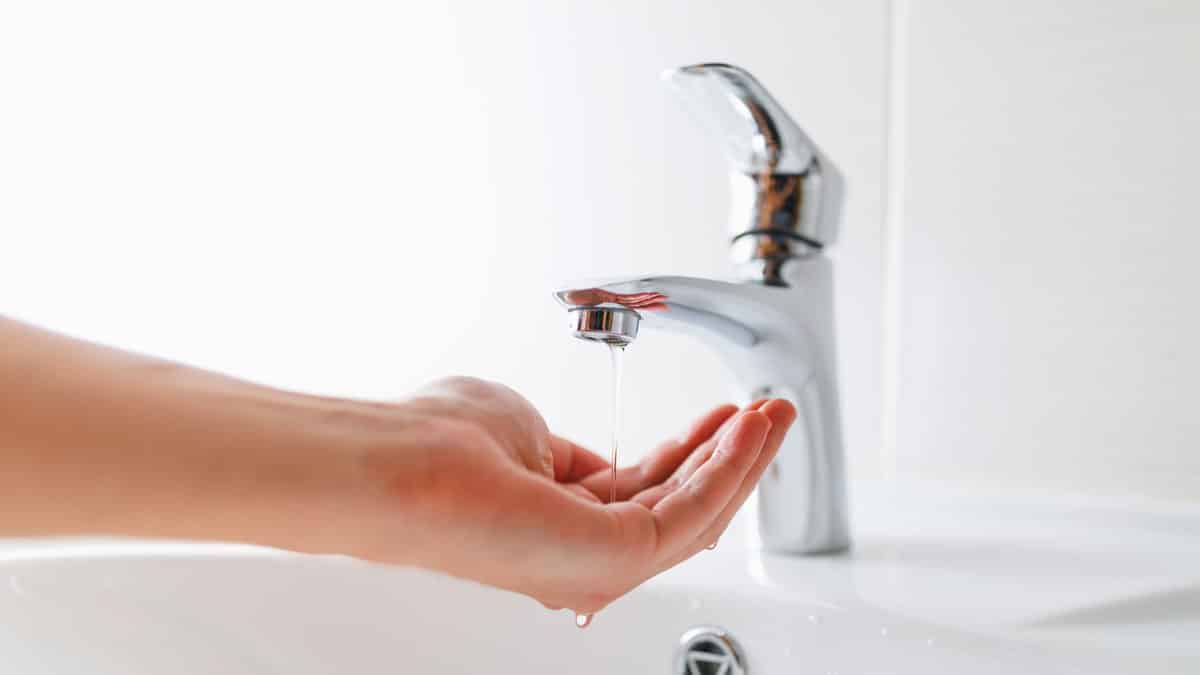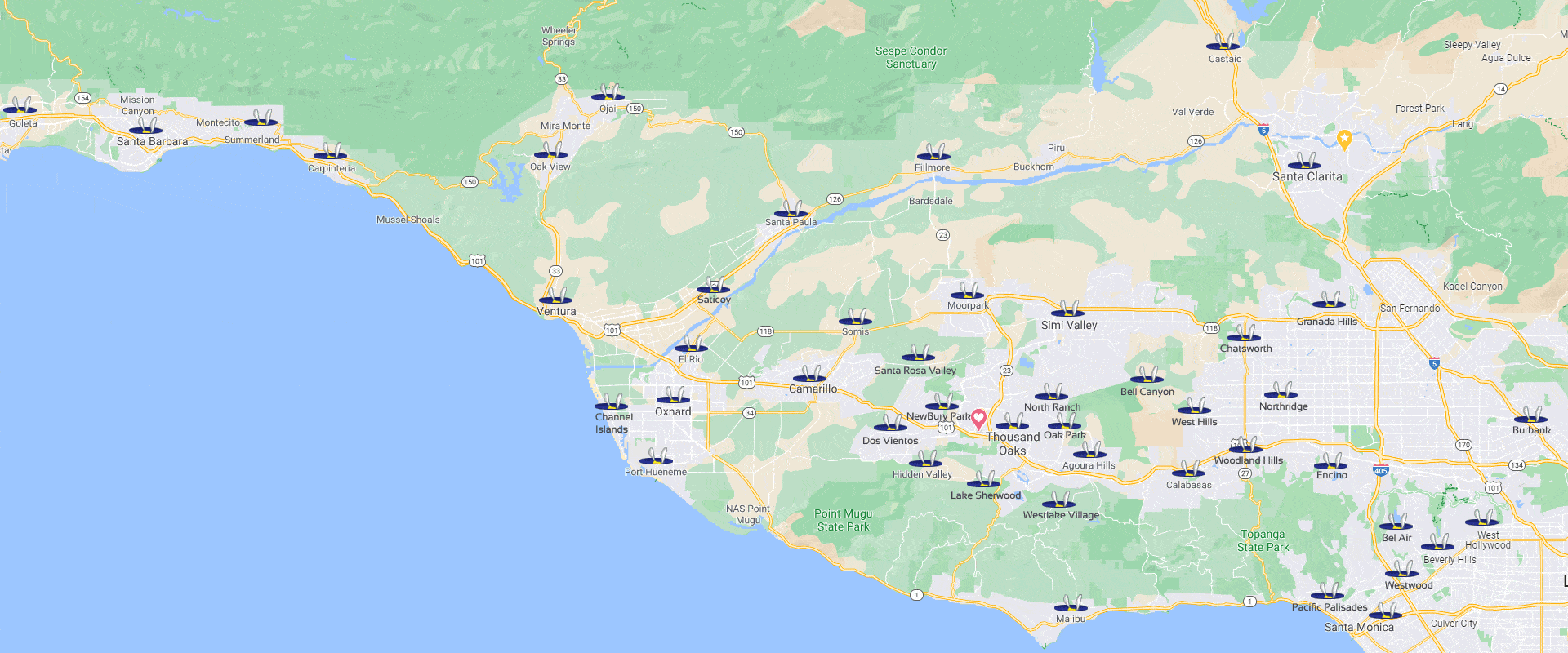Causes of Low Water Pressure
Good water pressure is something many homeowners take for granted. In a home lacking optimum water pressure, the dishwasher performance is subpar, the washing machine takes longer to fill up, and faucets slow down to a trickle. Showering also becomes time-consuming as you struggle to rinse soap and shampoo away because you aren’t getting an adequate water flow to do an efficient job.
The team at Conejo Valley Home Services Plumbing & Rooter are here to help you look at the common reasons why homeowners experience low water pressure and how to remedy the problem throughout your home.

Emergency Service
(805) 499-0448
- What Is Low Water Pressure?
- Why Is My Water Pressure Low?
- What Should My Water Pressure Be At?
- What Are The Causes Of Low Water Pressure In The House?
- How Do You Fix The Water Pressure In Your House?
- Still Having Issues? Contact Conejo Valley Home Services Plumbing & Rooter To Fix Your Water Pressure Issues!
What is Low Water Pressure?
Low water pressure is when the water flowing out of plumbing fixtures, like faucets and shower heads, weakly drips out rather than sprays out at the average in-home water pressure. When the water pressure is low, it can significantly affect the quality of living in your home.
Why is My Water Pressure Low?
Living in a home with water pressure issues is time-consuming and frustrating, but what’s worse is that many homeowners don’t realize that you first need to identify the root cause before you can fix the issues. Instead, too many homeowners get used to living with their home’s low water pressure and risk significant plumbing problems in the future.
Causes of low water pressure can be directly attributed to several problems in your home. Some of the reasons why you’re experiencing low home water pressure include:
- Damaged pressure regulator
- Blockage in pipes
- Partially closed water meter valve
- Water distributor issues
- Partially closed primary shutoff valve
- Pipe mineral collection
- Interior pipe deterioration
- Pipe leaks
It is essential to learn how water pressure issues come to be so that you can have them fixed.
What Should My Water Pressure Be At?
Residential water pressure ranges between 40 and 60 PSI (pounds per square inch). Most homeowners prefer something right in the middle, around 50 PSI. We usually consider anything below 40 psi low and below 30 psi too low. On the other side of the spectrum, pressures above 80 psi are too high.
Low water pressure is a nuisance rather than a major problem because some fixtures, like washing machines, usually have minimum pressure requirements. High water pressure, however, is significantly more risky as it can cause damage to pipes, joints, fixtures, and seals - not to mention the increased water waste.
Ahead, we will look at the causes of low water pressure and how to fix low water pressure problems in your house.
What are the Causes of Low Water Pressure in the House?
When you’re having low water pressure issues with just one faucet or tap, it’s usually because of a problem with that specific fixture. But what about when you experience issues throughout the whole home?
Here are some of the issues that may be causing low water pressure in your house.
» Valves Aren’t Open All The Way
The first is the master house shutoff valve, which you probably haven’t messed with unless you’ve had some pipe leak or emergency. Just have a look anyway in case the kids tampered with it. In most cases, you can usually find it inside the house, but it may be somewhere outside.
The second is the water meter valve which belongs to your local water utility company. This valve is almost always accessed only by the water company. If you experience a sudden drop in water pressure after recent repairs, the serviceperson might not have fully opened the valve.
» Bad Pressure Regulator
When your home’s water pressure regulator fails, it could cause a sudden increase or decrease in the water pressure. One common reason for failure is the build-up of sediment in the valve, which could cause blockages, short cycling, or pump problems.
When your pressure regulator fails, you’ll notice an immediate reaction in your home. You might experience irregular water pressure that is hard to control with your sink, bathtub, or kitchen faucets. The water pressure will either be too high or too low.
» Old or Corroded Pipes
Corrosion is one of the most common causes of low water pressure in homes with older plumbing. Not only can your home’s pipes become clogged with scale, but they can also become restricted by corrosion. Such problems that lead to poor water pressure usually happen in homes with older, galvanized iron pipes, which can corrode due to the water’s pH level.
» Leaking or Clogged Pipes
Consider that the pipes in your home are much like your body’s arteries. Just as cholesterol can clog your veins, the build-up of limescale and other minerals can restrict the diameter of your pipes over time, leading to low water pressure.
Acidic water can cause corrosion, leading to small holes and leaks in your pipes. These tiny holes let water escape before it reaches your taps, resulting in lower pressure. Since pipe leaks and limescale clogs develop slowly over time, you may not notice it until the issue becomes bad enough that you need to open Google and search for “Leak detection services near me.”
Also Read: How To Fix A Leaking Pipe Behind A Wall And Minimize Damage
» Shared Mains Pipe
Some water pressure problems might develop when more than one property shares a supply pipe from the water main. While this is usually okay, problems can develop if the supply pipe is too small. Low home water pressure may also result from reduced pressure from the water main due to leakages, equipment failures, or service pipe blockages.
» Changes in Council Regulations
A problem with your home’s water pressure may have nothing to do with your home or its plumbing system; it could be a municipal water problem.
Your local council may have changed the local water regulations, and water suppliers must comply with newly introduced rules by reducing the amount of water they can supply to homes. You might require a water pressure booster system in such a scenario. A professional plumber can install such a system.
» Too Much Demand
Sometimes, there may be too much demand for your home’s water supply. There could be several plumbing fixtures running simultaneously, and as a result, the water pressure suffers. Some routine and coordination changes should help you avoid this problem and improve water pressure.
How Do You Fix the Water Pressure in Your House?
Make your low water pressure problems go away with these helpful fixes that can help increase the force and improve water flow in your home. Here’s how to fix low water pressure in your house:
» Clear the Clogs
Over time, your pipes may develop a build-up of mineral deposits, and the situation can be exceedingly awful if you have hard water. If unaddressed, the diameter of the pipes may decrease until they clog, killing the water pressure.
Vinegar mixed with baking soda is a popular solution for breaking up mineral deposits in pipes. Mix up a couple of gallons of vinegar and several cups of baking soda, and you have an effective homemade drain cleaner.
» Look Out for Leaks
Cracked or damaged pipes may leak water as it travels through your pipes, leading to low water pressure at the faucet. If you suspect your pipes are leaking but can’t find the leak, It’s time to call a pro. Quit your search for “Quality leak detection services near me” and contact Conejo Valley Home Services Plumbing & Rooter today!
» Install a Water Pressure Booster Pump
If you’re still wondering, “How can I improve house water pressure in my home?” it may turn out that the problem isn’t you but your neighborhood. Distance and gravity are two factors that may negatively impact water pressure.
If your household water supply travels uphill or far from the municipal water source, that may hinder its force. Consider installing a water pressure booster pump to increase the water flow rate when it reaches your home.
Still Having Issues? Contact Conejo Valley Home Services Plumbing & Rooter to Fix Your Water Pressure Issues!
Not able to fix your low water pressure? Reach out to our experts at Conejo Valley Home Services Plumbing & Rooter. You can Count on our team’s highly experienced, licensed, and certified plumbers to eliminate your poor water pressure!
We offer 24/7 emergency plumbing services for emergency drain cleaning, sump pump repairs, water heater repairs, and gas line replacements. Give our team a call at (703) 782-3712 or request service online, and we’ll fix your low water pressure the right way!
Our innovative solution
- Water Heaters
- Drain Cleaning
- Re-Pipe Specialists
- Sewer Inspection

Why choose Conejo Valley Home Services Plumbing & Rooter?
-
Trusted, certified technicians
-
Emergency Repairs
-
Available 24/7
-
Exceptional Service Guarantee
-
Locally Owned and Operated
-
Licensed and Insured
-
Workmanship Parts Guaranteed
-
Courteous, Uniformed Professionals
-
Convenient Appointment Times













